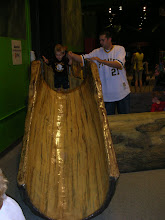Being able to understand what all of these medias mean and do these days is extremely important. Media Literacy is defined as the process of analyzing, evaluating, and creating messages in a wide variety of media modes, genres, and forms. It uses an inquiry-based instructional model that encourages people to ask questions about what they watch, see, and read (wiki 2009). According to Marilee Sprenger, author of Focusing the Digital Brain, she came across a text message on a students phone: "First, he left me a voice mail, so I sent him a text on his cell, then he contacted me on Facebook, so I e-mailed him on my Blackberry Two days later he sent me an instant message, but I wasn't online. How will I meet him (Sprenger 2009)?" It just goes to show how many different types of media there are and the different types of communication. Students these days are able to understand and communicate as if they were born with a sixth sense. These children have grown up connected. Called both the net generation and digital natives, our students have grown up using digital media. Their brains have been conditioned by using computers to play games, send e-mail, exchange instant messages, videoconference through Skype (Sprenger 2009). What does that say for future education? Sprenger's article was extremely interesting she gave advice such as: "Take away the toys occasionally and encourage students to practice listening to one person at a time. Explain how uncomfortable you — and many people — find it to converse with someone who is reading or sending a text message. Pair students and give each partner three minutes to speak to his or her partner about an assigned topic. Each student must actively listen to the other, make eye contact, and not interrupt. After each partner has both spoken and listened, have students discuss together what each of them said and how the experience felt. Attentive listening usually promotes empathy and connectedness. Discuss the experience as a whole class. Ask how students felt about talking and listening carefully to a peer while disconnected from any digital media. Did they notice facial expressions and body language? Did being focused change the communication (Sprenger 2009)? A question I have as a teacher though is why should we have to work with this type of distraction? I do not think phones should be allowed in schools. They can cause many problems and eliminating them all together from the schools they are in would not deter them from learning. I do agree that teachers must use as much technology as possible to stay up with their students evolving brains and ways of learning.
References:
http://wikipedia.org/wiki/Media_literacy. Source found September 13, 2009.
Sprenger, Marilee (2009). Focusing the Digital Brain. Educational Leadership. 67,(1). 34-39.

No comments:
Post a Comment